#Panamanian golden frog
Explore tagged Tumblr posts
Text

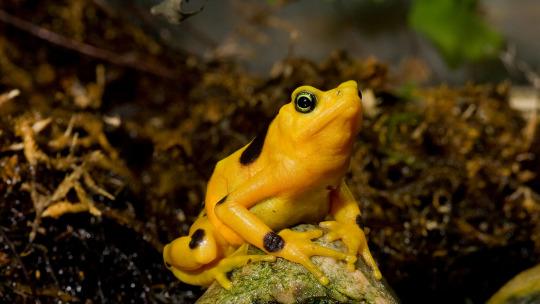
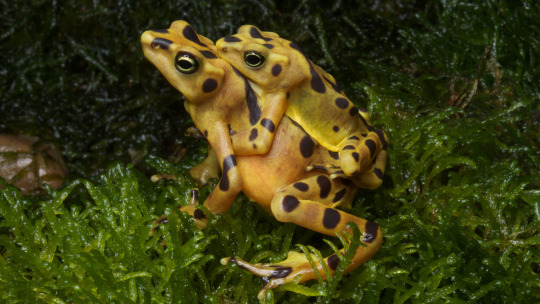
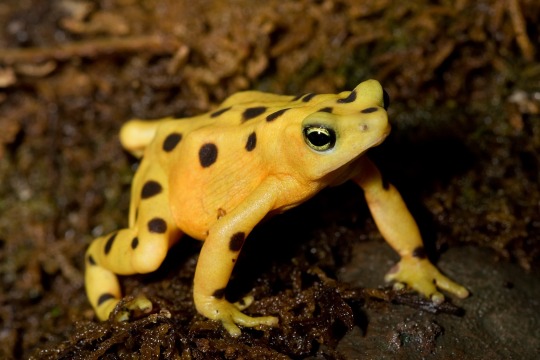
Panamanian Golden Frog
Atelopus zeteki
These guys are tiny. So small, in fact, that they’re born without eardrums. They use a form of sign language called semaphore to communicate with other frogs. This sign language involves waving hands and raising feet to greet each other, defend territory, or attract a mate. For example, male frogs will wave their arms to attract females, and females will wave back if they are interested.
Unfortunately, they’ve been extinct in the wild since 2007 due to the amphibian chytrid fungus but they’re being bred successfully in captivity.
#panamanian golden frog#atelopus zeteki#frogposting#frog#toad#panama#sign language#amphibians#amphiblr#amphibian#frogblr#toadblr#mine#biology#zoology#marine animals#marine biology#extinct species#animals#science#rainforest#SSP#species survival plan#herpetology#herpetologist
271 notes
·
View notes
Text
Amphibiuary 2024 Day 10: Yellow

A Panamanian golden frog in this lineless style I'm still messing with. Added a bit more of my white highlighter pen but I do think it takes away from the lineless feel a bit so I might just keep it to little eye shines from now on.
#amphibiuary2024#yellow#panamanian golden frog#atelopus zeteki#artists on tumblr#my art#frogs#original work#cartoon#cute#traditional art#traditional illustrations#promarkers#lineless art
71 notes
·
View notes
Text
Noyes family designs: part three

Lucy gets her own page because she was… so difficult to draw. I had no idea what colours to draw her with. I still don’t know what I’m doing with her.
Someone PLEASE ask me about Lucy, I love talking about Lucy.
Design notes:
• When drawing her webbed hands and feet, I considered making them look like cormorant feet, but I decided against that. I based them off Panamanian golden frogs instead, because I couldn’t resist. They’re magnificent. Look at these little guys:
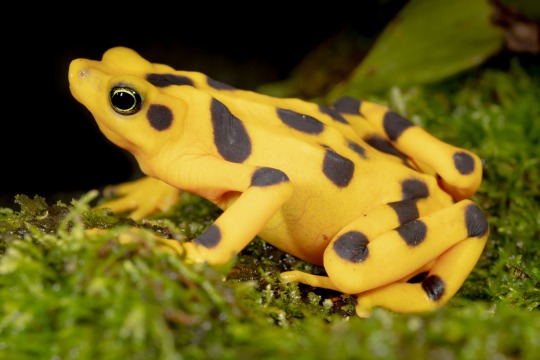
• They’re lovely and sunny and have no eardrums, so they communicate with a form of frog sign language! They wave at each other! • I generally attempted to make Lucy look vaguely frog-like. • I thought it would be fitting for Lucy to look bright and sunny, since Lucifer is known to be the light-bringer; I also heard it said that Lucifer was the ‘brightest angel’. No idea where I heard that one, but I’ll take it. • Lucy gets a staff- I will admit that I have disappointingly little knowledge in weaponry so I wouldn’t have the faintest clue as to what type of staff it is and whatnot. While reading the book, I was absolutely convinced that Lucy’s parasol was a means of hiding a secret weapon of some sort, and the most convenient weapon would be a staff. I had high expectations of a flashy anime scene where Lucy converts her parasol into a tool to more effectively beat someone up. This does not happen but Findley can pry my dreams of cool anime scenes from my cold, dead hands. • I can see ‘Not Wanted on the Voyage’ Lucifer being the brightest angel, but as in being the most intelligent angel, not one that is particularly powerful. I don’t get the sense that she’s a combat specialist like her brother Michael, and we never hear of her miracles being considered impressive by angel standards. And I like that- the idea of Lucy being a threat simply due to being clever and tricky. (Lucy herself seems pretty confident in her own ability to be resourceful and wriggle her way out of situations: “I’ll make it up as I go along” seems to be her general motto. She strikes me as the type of person who waits until the very last minute to start working on a school project but somehow always manages to do well.) • Her feathered gown is based off of a common bronzewing, simply because I looked up pictures of birds with bronze feathers to reference from. They’re quite cute as well:

• Lucy’s ‘honey-coloured’ hair was inspired by Hannah Montana. I have never watched Hannah Montana and yet I am convinced that they are basically the same character.
#not wanted on the voyage#art#character design#character illustration#digital art#small artist#common bronzewing#Panamanian golden frog#pigeon#frog#frog!#i love frogs#birds#character analysis#book analysis#digital drawing#lucifer#Not wanted on the voyage fanart#Noah’s ark#Amphibian#frog facts#timothy findley#hannah montana
22 notes
·
View notes
Text
Chemistry Behind Panamanian Golden Frog
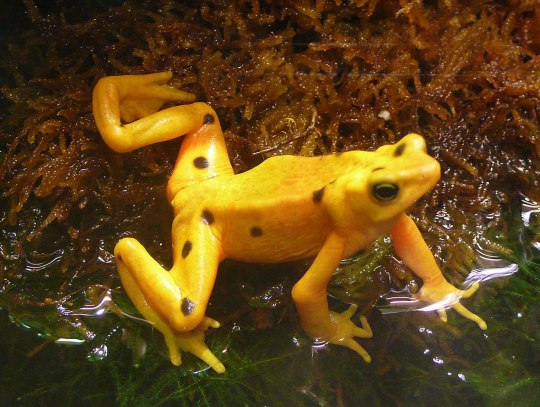
Have you ever heard of the Panamanian golden frog? This incredible species of toad is not only known for its unique golden color but also its ability to communicate by waving its front feet! 🐸👋🏼 Unfortunately, the IUCN lists them as Critically Endangered, and they may have been extinct in the wild since 2007. 😢
Apart from their fantastic communication skills, Panamanian golden frogs have an extraordinary defense mechanism - they secrete a highly toxic neurotoxin, Zetekitoxin AB, which is 580 times more potent than saxitoxin. ☠️ One Panamanian golden frog can produce enough venom to kill 1,200 mice weighing about 20 grams each.
Let's raise awareness and work together to conserve this amazing species! 🙌🏼 Share this post and tag a friend who loves animals. 🐾🌿
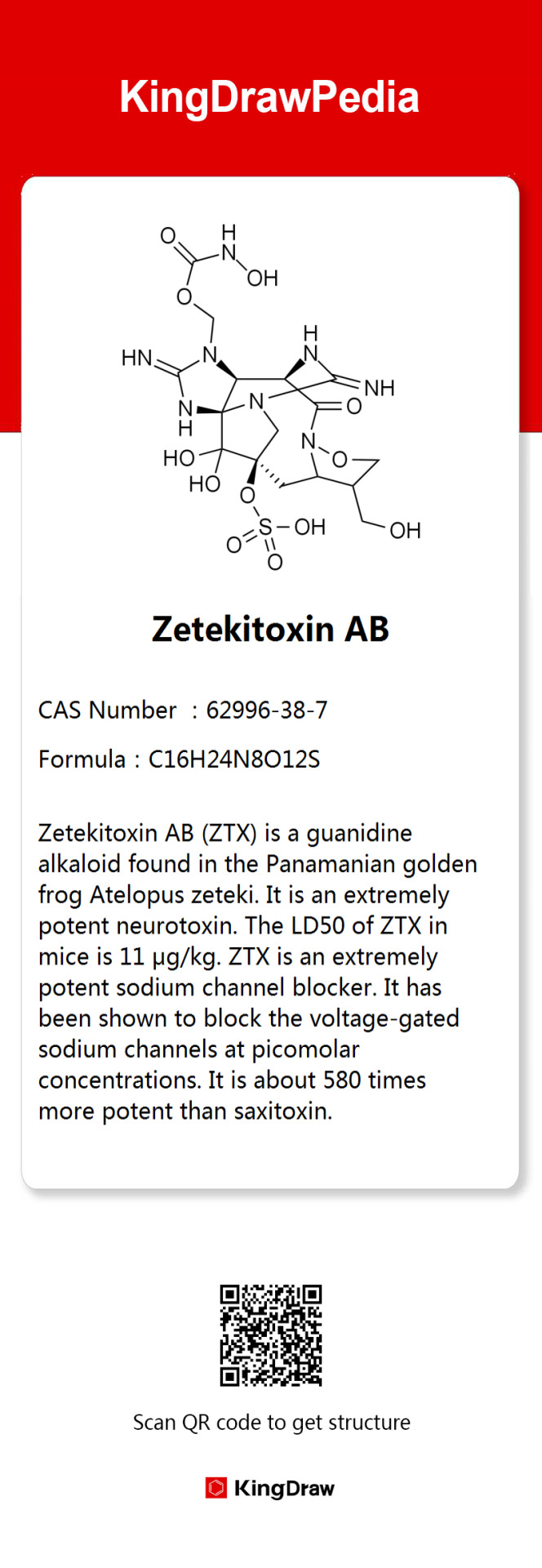
#Zetekitoxin AB#Panamanian golden frog#neurotoxin#frogblr#toxicity#endangered#conservative#chemblr#stemblr#molecule#did u know#toxic neurotoxin
29 notes
·
View notes
Text
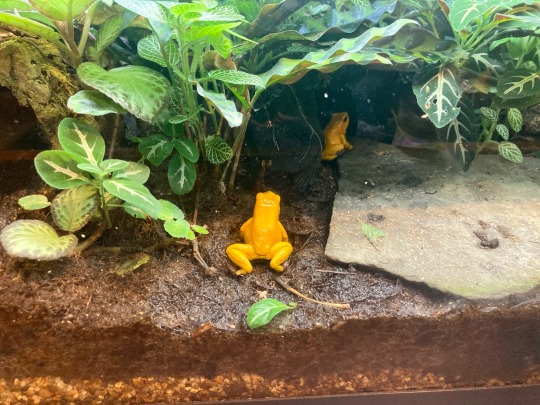
4 notes
·
View notes
Text
Phaedrus: Gentleness
“Gentleness is the antidote for cruelty. ” —Phaedrus.
View On WordPress
#Diana Krall#Imperial College London#Panamanian golden frog#phaedrus#Self-esteem#Ursula K. Le Guin#youtube#Zen and the Art of Motorcycle Maintenance
3 notes
·
View notes
Text
Panamanian Golden Frog (Atelopus zeteki) – The Golden Life Frog

“ Panama's golden frog really required assistance. ”
– Eostre
The Panamanian golden frog (Atelopus zeteki), also known as Cerro Campana stubfoot toad and other names, is a species of toad endemic to Panama.

Not me, but different skin as pretty maid (princess) in 19th century for captured this species as since in Play Together.
Physiology
Despite its common name, the Panamanian golden frog is a true toad, a member of the family Bufonidae. It was first described as a subspecies of Atelopus varius, but is now classified as a separate species.
The Panamanian golden frog is a national symbol and is considered to be one of the most beautiful frogs in Panama. The skin colour ranges from light yellow-green to bright gold, with some individuals exhibiting black spots on their backs and legs. Females are generally larger than males; females typically range from 45 to 63 mm (1.8 to 2.5 in) in length and 4 to 15 g (0.14 to 0.53 oz) in weight, with males between 35 and 48 millimetres (1.4 and 1.9 in) in length and 3 and 12 grams (0.11 and 0.42 oz) in weight.
Abilities
Poison can keep the Panamanian golden frog safe, and its diet helps make the a frog toxic even to the touch. In fact, the more different kinds of insects and invertebrates the frog eats, the more toxic its skin secretions become. All frogs in the golden frog's taxonomic family, Bufonidae, have toxic skin secretions for protection, but the Panamanian golden frog's secretions are the most toxic of the entire group.
Behavior
Toxic chemicals are present in toad skin and parotid glands. Drinking toads or toad cake can get you drunk. The majority of its venom's harmful substances are steroids that resemble digoxin. The majority of patients experience nausea, vomiting, and discomfort in the abdomen.
Distribution and Habitat
Panamanian golden frogs inhabit the streams along the mountainous slopes of the Cordilleran cloud forests of west-central Panama. While the IUCN lists it as Critically Endangered, it may in fact have been extinct in the wild since 2007.
Conservation
The remaining few specimens were taken into captivity and the location of filming was kept secret to protect them from potential poachers. Although captive populations seem to thrive well, reintroducing them to an area will not stop the threat of chytridiomycosis.
No current remedies prevent or control the disease in the wild, but efforts are being made. One attempt was made to protect a wide variety of frogs from the disease by using the bacterium Janthinobacterium lividium that produces a chemical against the infections; however, the skin of Panamanian golden frogs was unsuitable for the bacterium used.
Individuals have been collected for breeding in captivity in a bid to preserve the species.
Reference
#ognimdo2002#earth responsibly#science fantasy#earth#ibispaint art#art ph#rapunzel's tangled adventure#frog#panama#panamanian golden frog#critically endangered#amphibian#animal#ibispaintx#april 2024#art philippines
3 notes
·
View notes
Text

Panamanian golden frog
1 note
·
View note
Text


panamanian golden frog in its beautiful enclosure at the zoo today. critically endangered, possibly extinct in the wild
1 note
·
View note
Text
tag yourself

115 notes
·
View notes
Text
Pairing frogs and toads together might conjure memories of Arnold Lobel’s beloved characters — dressed to the nines in caramel coats and polyester — biking off toward adventure.
But in the animal world, frogs and toads on nearly every continent are facing a much more harrowing adventure: a decades-long fight against a mysterious fungal virus that has afflicted over 500 amphibian species.
Since the 1990s, scientists estimate that the chytridiomycosis disease caused by the fungal pathogen Bd (Batrachochytrium dendrobatidis) has led to the extinction of 90 amphibians. One of the lost species includes the Panamanian golden frog, which hasn’t been spotted in the wild since 2009.
Fortunately, a new research study has finally pinpointed the virus that has been infecting fungal genomes for decades.
“Bd is a generalist pathogen and is associated with the decline of over 500 amphibian species…here, we describe the discovery of a novel DNA mycovirus of Bd,” wrote Mark Yacoub — the lead author of the study and a microbiology doctoral student at the University of California, Riverside.
In an interview with UC Riverside News, Yacoub said that he and microbiology professor Jason Stajich observed the viral genome while studying the broader population genetics of mycovirus (viruses of fungi).
The discovery will undoubtedly have monumental impacts on future amphibian conservation efforts. This includes the possible launching of new research studies into fungal species strains, the practice of cloning and observing spores, and engineering a solution to the virus.
But Yacoub cautioned that this is only the beginning.
“We don’t know how the virus infects the fungus, how it gets into the cells,” Yacoub said. “If we’re going to engineer the virus to help amphibians, we need answers to questions like these.”
Still, as scientists strengthen conservation efforts to save frogs and toads (and salamanders too!) they also appear to be saving themselves. Yacoub pointed out several amphibian species around the world have begun exhibiting resistance to Bd.
“Like with COVID, there is a slow buildup of immunity,” Yacoub explained. “We are hoping to assist nature in taking its course.”
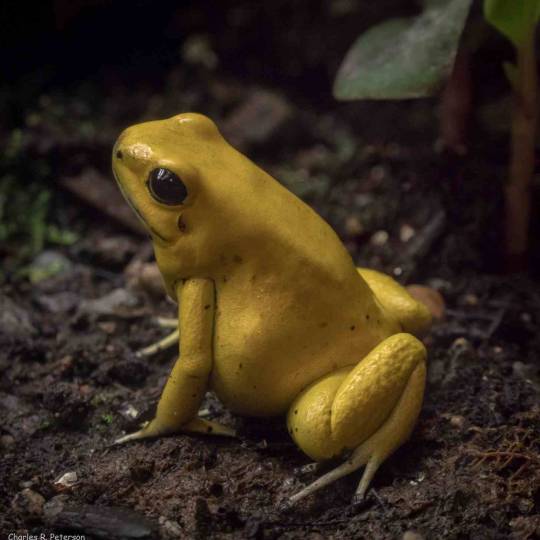
Pictured: A Golden poison frog — one of the many species endangered by chytridiomycosis — in captivity.
Why are frogs and toads so important?
From the get go, every amphibian species plays an important role in their local ecosystem. Not only are they prey for a slew of animals like lizards, snakes, otters, birds, and more, but in an eat-or-be-eaten world, frogs and toads benefit the food chain by doing both.
Even freshly hatched tadpoles — no bigger than a button — can reduce contamination in their surrounding pond water by nibbling on algae blooms.
As they grow bigger (and leggier), amphibians snack on whatever insect comes their way, greatly reducing the population of harmful pests and making a considerable dent in the transmission malaria, dengue, and Zika fever by eating mosquito larvae.
“Frogs control bad insects, crop pests, and mosquitoes,” Yacoub said. “If their populations all over the world collapse, it could be devastating.”
Yacoub also pointed out that amphibians are the “canary in the coal mine of climate change,” because they are an indicator species. Frogs and toads have permeable skin, making them sensitive to changes in their environment, and they also rely on freshwater.
When amphibians vanish from an ecosystem, it’s a symptom of greater environmental issues...
Herpetologist Maureen Donnelly echoed Yacoub’s sentiments in an interview with Phys Org, noting that when it comes to food chains, biodiversity, and environmental impact, the role of frogs and toads should not be overlooked.
“Conservation must be a global team effort,” Donnelly said. “We are the stewards of the planet and are responsible for all living creatures.”
-via GoodGoodGood, April 22, 2024
#frog#frogs#toads#frogs and toads#conservation#biodiversity#herpetology#mycology#fungi#endangered species#extinction#ecosystems#climate change#environment#biology#environmental science#ecology#good news#hope#frogblr#frog blogging
354 notes
·
View notes
Text

Panamanian Golden Frog (Atelopus zeteki), family Bufonidae, Panama
CRITICALLY ENDANGERED.
Poisonous.
This species is now most likely extinct in the wild, but many zoos and other similar institutions are keeping and breeding them. (They have not been seen in the wild since 2007).
The main cause for their decline has been the chytrid fungus.
photograph by Jaime Culebras Wildlife
#harlequin toad#stub footed toad#toad#frog#atelopus#bufonidae#amphibian#herpetology#animals#nature#central america
405 notes
·
View notes
Text
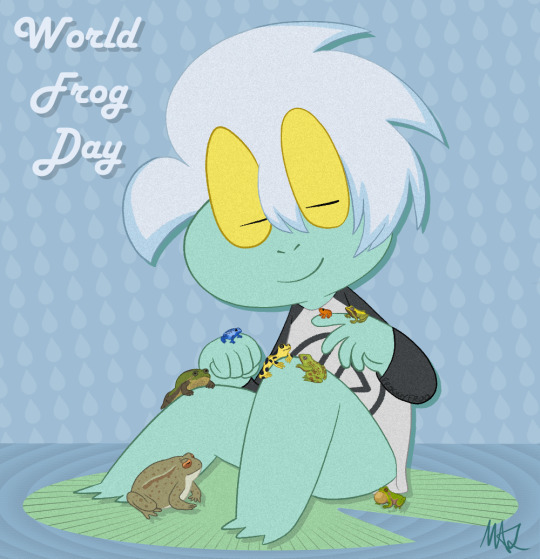
Happy World Frog Day from Zed and some... sort of familiar looking frogs...
#world frog day#silk town spawn#sts zed#frogs#artists on tumblr#original character#cute#digital art#art#digital illustration#cartoon illustration#cartoon#my art#illustration#original work#anthro#furry art#sfw furry#csp#clip studio paint#pool frog#european common toad#pumpkin toadlet#green mantella#blue poison dart frog#dyeing poison dart frog#italian tree frog#paradoxical frog#panamanian golden frog
24 notes
·
View notes
Note
Trick or treat! 🥰
you get the LAST PANAMANIAN GOLDEN FROG [x1 do not drop this]

442 notes
·
View notes
Text


Panamanian golden frog! (Atelopus zeteki)
Sadly this frog is critically endangered, and possibly extinct in the wild. :(
43 notes
·
View notes
Text

1 note
·
View note